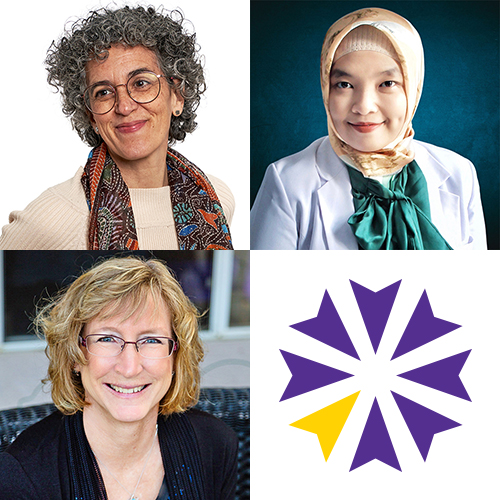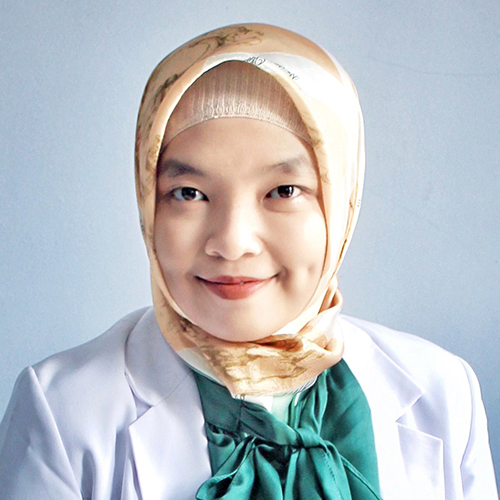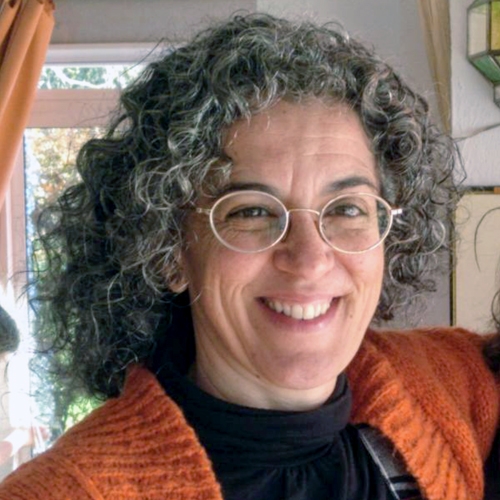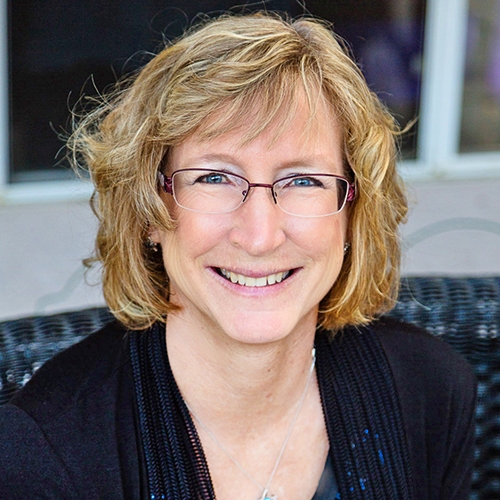
GOLD Learning Day: Breast-Related Pathologies and Clinical Management During Lactation
Having an understanding of breast anatomy and physiology and how to identify and manage pathology is a crucial part of a lactation professionals required knowledge. This year for our Summer GOLD Learning Day we are thrilled to welcome three experts to share their knowledge of common breast pathologies and their clinical management. Join us as Lisa Marasco MA, IBCLC, FILCA, Carmela "Kika" Baeza MD, IBCLC, and Dyah Febriyanti MD, IBCLC, FABM present the latest research on breast hypoplasia, mastitis and galactoceles.
Join us live on August 19, 2024 for this exciting day of learning!
View/Print the Live Time Schedule Here
This program has applied for L-CERPs, Nurse Contact Hours and CMEs.
SAVE on your registration! Register by Aug. 1 & save on Early Bird Discount! Regular registration price comes into effect on Aug. 2.
|
Indivudual Registration | Group Registration (5+) | ||
| Prices in USD | Early Bird | Regular | Early Bird | Regular |
| Country Category A | $40 | $50 | $35 | $40 |
| Country Category B | $20 | $25 | $17.50 | $20 |
| Country Category C&D | $12 | $15 | $10.50 | $12 |
Want to Sign Up as a Group of 5 or more? Contact us at [email protected]


Dr. Dyah Febriyanti is a medical doctor, an IBCLC, a breastfeeding counselor, and a mother living in Jakarta, Indonesia. She has been working in hospitals since she graduated in 2012. She was facing many struggles to succeed breastfeeding her daughter for two years. She has been an IBCLC since 2017. She works with breastfeeding dyads in a team, called Praborini lactation team, consisting of all lady doctors in outpatient and inpatient care units. Concerning breastfeeding and nutrition in early life, she has published a semi-cookbook about complementary foods for breastfed babies and cooking videos to educate and help mothers feed their babies. She also has been working on scientific writing. She is a member of the Academy of Breastfeeding Medicine, International Lactation Consultant Association, and a trainer of the Indonesian Society of Perinatology.
Topic: Pitfalls in Infant Feeding Practices After Starting Solids - [View Abstract]
1. Describe recent updates about galactocele, particularly the giant ones.
2. Explain the relationship between tongue tie and its impact on the breastfeeding process.
3. Describe the comprehensive treatment for tongue tie's health consequences, including problems
requiring surgery.
We report the case of a 36-year-old breastfeeding mother who presented with a giant galactocele, a painless lump in the left breast that grew rapidly over 18 days. It is theorized that inadequate breast emptying caused by the baby's tongue tie might have contributed to the galactocele development in the mother. In general, surgical drainage is required to resolve a galactocele, yet the procedure makes it difficult to maintain breastfeeding. In this case, the baby's latch was poor due to ankyloglossia. Inpatient care was coordinated amongst a surgeon, a pediatrician, and lactation specialists (IBCLC). This session will describe the care provided to this dyad which allowed them to continue breastfeeding despite undergoing multiple procedures.


Carmela is a family medicine MD, bachelor´s degree in Public Health Education, and IBCLC since 2005. She is also a BFHI Evaluator and the co founder and past president of the Spanish Lactation Consultant Association (AECCLM). She works in a private Family Wellness Clinic, Raices, as person in charge of the lactation program, which includes two IBCLCs attending breastfeeding families and an extensive offer of breastfeeding training for health care professionals and breastfeeding peer counsellors. The team has trained over three thousand doctors, midwives and nurses from both the Spanish National Health Service and the private sector in Spain. She is a frequent lecturer at national conferences, and has also lectured internationally, both on-site and online. She is the author of several scientific papers on breast pain, mastitis and tongue tie. She is also the author of a breastfeeding/parenting book, “Amar con los Brazos Abiertos” (To Love with Open Arms). She is married to Carlos and they homeschool their four children.
Topic: Assessment and Management of Mastitis - [View Abstract]
Topic: Getting Milk Production off to a Good Start - [View Abstract]
Topic: Management of Chronic Breast Pain: Holistic Approach - [View Abstract]
Topic: The Art and the Science: A Critical Look at the Physiology and Management of Mastitis - [View Abstract]
1. Explain the clinical definition and management of acute mastitis.
2. Describe two of the proposed definitions for other types of mastitis.
3. Analyze two current studies on mastitis spectrum physiology and management.
Mastitis has been occurring for as long as breastfeeding itself. It is a very common difficulty in nursing women. For many decades, its diagnosis and management were considered to be straightforward. However, in the last decade new concepts have been put forward, such as dysbiosis, subacute mastitis, and the concept of the mastitis spectrum. In this talk, we will take a look at the scientific evidence (or lack thereof) for these terms and discuss their impact on day to day clinical management.


Lisa Marasco has been working with breastfeeding mothers for 35 years and has been Internationally Board Certified since 1993. She holds a Master’s degree in Human Development with specialization in Lactation Consulting and was designated a Fellow of ILCA in 2009.
Lisa is co-author of Making More Milk: The Breastfeeding Guide to Increasing Your Milk Production, a contributing author to the Core Curriculum for Interdisciplinary Lactation Care, and a Cochrane Collaborative author. She is employed by WIC of Santa Barbara County while she continues to research, write and speak. In addition, Lisa is affiliated with La Leche League of So. Calif/Nevada, and serves on the Breastfeeding Coalition of Santa Barbara County.
Topic: Deciphering the Lactation Curve - [View Abstract]
Topic: Developing An Action Plan for Mammary Hypoplasia: Improving our Understanding to Optimize Care - [View Abstract]
Topic: Getting a Better Grip on Prolactin - [View Abstract]
Topic: Recognizing When Things Are Heading South - [View Abstract]
Topic: The Mysterious Milk Ejection Reflex - [View Abstract]
1. Explain the difference between congenital and acquired mammary hypoplasia.
2. List at least 4 potential risk factors/markers for mammary hypoplasia.
3. Describe the 5-point strategy for addressing poor lactation due to suspected mammary hypoplasia.
Insufficient milk output has many causes; one of the least understood is mammary hypoplasia, under and/or abnormal development of the lactating tissue. In some cases the etiology appears to be genetically predetermined, while in others it is acquired due to environmental, hormonal or other insults prior to or during critical windows of development. It is important to differentiate these causes and their risk markers from incomplete breast changes during pregnancy due to transient external factors that may not repeat during another lactation cycle. This information, along with an understanding of the parent’s infant feeding goals, life situation and emotions, will assist the lactation clinician in developing a supportive and optimized care plan strategy.
Accreditation
CERPs - Continuing Education Recognition Points
Applicable to International Board Certified Lactation Consultants (IBCLCs), Certified Lactation Counselors (CLCs), Certified Lactation Educators (CLEs), Childbirth Educators (CBEs) and Doulas. GOLD Conferences has been designated as a Long Term Provider of CERPs by IBLCE--Approval #CLT114-07. This program is approved for 3 L-CERPs
CMEs - Continuing Medical Education Credits for Physicians & Nurses
The American Academy of Family Physicians has reviewed this activity and deemed it acceptable for AAFP credit. Term of approval is from 8/19/2024 to 8/19/2025. Physicians should claim only the credit commensurate with the extent of their participation in the activity. This activity is approved for 3 AAFP Prescribed CME credits.
Nurse Contact Hours
This activity has been submitted to American Nurses Association Massachusetts for approval to award 3 contact hours. American Nurses Association Massachusetts is accredited as an approver of nursing continuing professional development by the American Nurses Credentialing Center's Commission (ANCC) on Accreditation. For more information regarding contact hours, please contact Nicole S. at 1-604-566-8311.
- View this presentation in its entirety, under your individual GOLD login info
- Successfully complete a post-test (3 out of 3 questions correctly answered)
- Fill out the Evaluation Survey
If you have already participated in this program, you are not eligible to receive additional credits for viewing it again. Please send us an email to [email protected] if you have any questions.
Additional Details:
Viewing time: 6 Weeks
Tags / Categories
(IBCLC) Development and Nutrition, (IBCLC) Maternal, (IBCLC) Maternal, (IBCLC) Pathology, Breastfeeding Support, Hypoplasia/Insufficient Glandular Tissue, Mastitis & Breast Infections, Maternal Illness & Breastfeeding
How much time do I have to view the presentations?
- The viewing time will be specified for each product. When you purchase multiple items in your cart, the viewing time becomes CUMULATIVE. Ex. Lecture 1= 2 weeks and Lecture Pack 2 = 4 Weeks, you will have a total of 6 weeks viewing time for ALL the presentations made in that purchase.
- Time for viewing the talks begins once you purchase the product. For Live Webinars & Symposiums, the viewing period begins from when the live event takes place. Presentations can be accessed 24/7 and can be viewed as many times as you like during the viewing period.
What are bundled lectures?
- Presentations may be available individually or via a bundled package. Bundled lectures are a set of lectures that have been put together based on a specific category or topic. Some lectures will be available in both individual and lecture form, whereas others will be available only via a bundled lecture pack.
Will there be Handouts?
- YES! Each lecture comes with a PDF handout provided by the Speaker.
Some lectures include a Q&A, what does that mean?
- During our online conferences, presentations that occur live are also followed by a short 15 minute Question & Answer Session. The Speaker addresses questions that were posted by Delegates during the presentation. We include the recording of these Q&A Sessions as a bonus for you.
How can I receive a Certificate?
- If this presentation offers a certificate, once you are done viewing the lecture or the lectures within a bundle, submit your attendance record in order to be able to download your certificate. You'll be able to see which credits are offered for the lecture by hovering over the "Credits Available" link within the "Speakers & Topics" tab.
Professionals that selected this package also viewed

|
|

|









